Tankless vs Tank Water Heater: Which is Right for Your Parkville Home?
When selecting a water heater for your Parkville-area residence, you have the option of choosing between a tank or a tankless model. Let's explore these two types, taking into account factors such as cost-effectiveness, maintenance, installation, and lifespan. Armed with this information, you can make an informed and intelligent choice. Feel free to reach out if you require further assistance.

What is a storage tank water heater and how does it work?
Storage tank water heaters are a prevalent choice for both residential and commercial settings. These water heaters function by storing water in a tank and heating it whenever it's required. The heating process is carried out by heating elements or burners present within the tank, allowing the hot water to be accessed through faucets and other outlets. To ensure efficient energy usage, the tank is insulated to reduce heat loss and uphold the desired temperature. Despite the increasing popularity of tankless water heaters, storage tank water heaters continue to be a dependable and economical choice for numerous individuals.

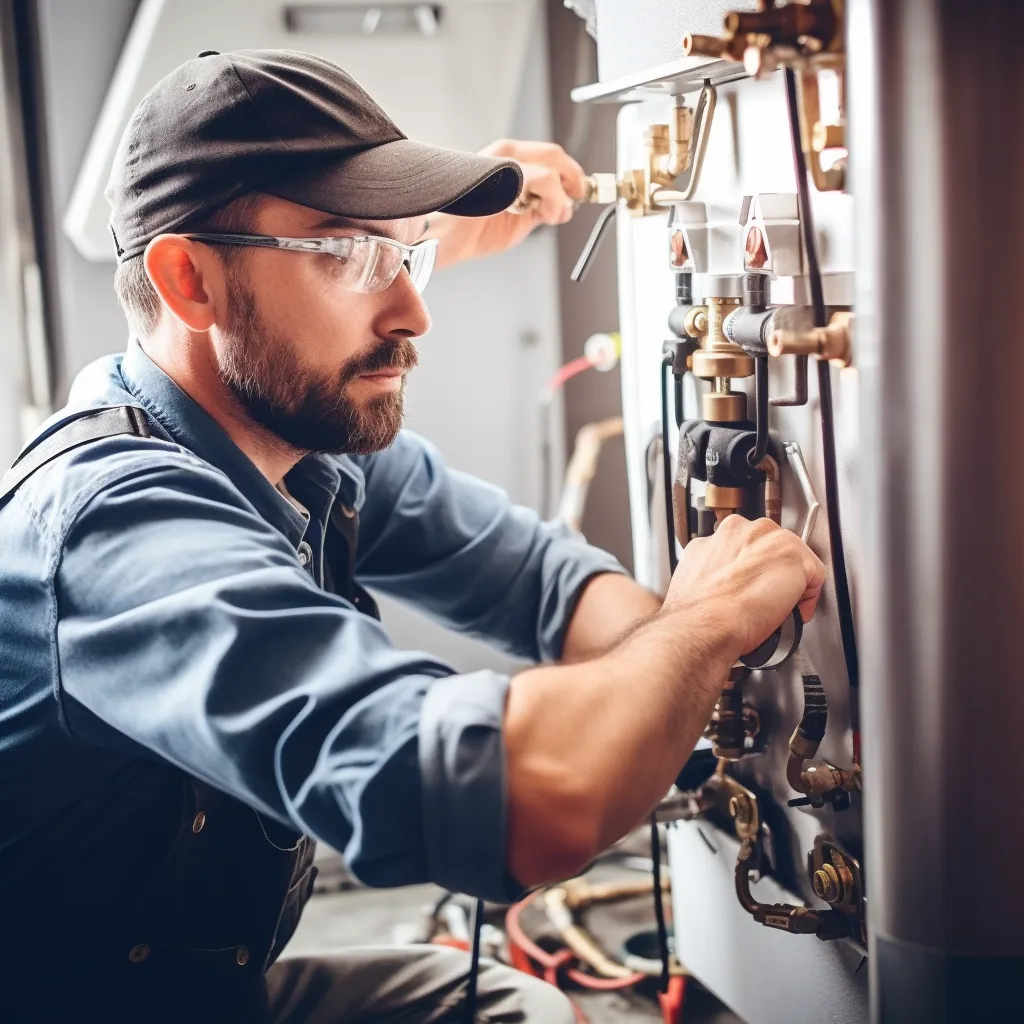
Benefits of a tank water heater
Tank water heaters are a cost-effective option when compared to tankless models:
They come with lower upfront acquisition and installation costs.
Their larger storage capacity ensures a reliable and uninterrupted supply of hot water for homeowners.
Compared to tankless models, tank water heaters also tend to experience fewer malfunctions, which enhances their overall reliability.
They incur lower maintenance costs, potentially leading to savings on repair expenses in the long run.
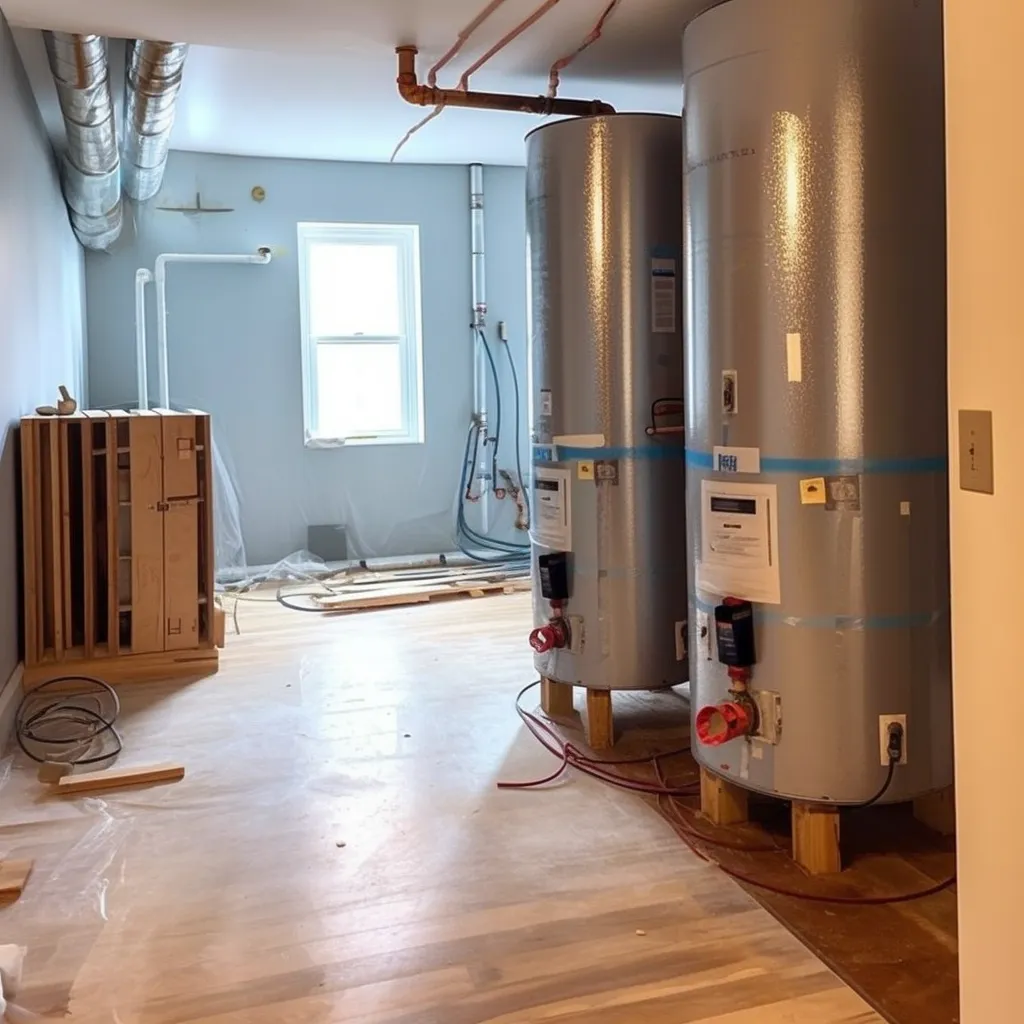
What are the drawbacks of a tank water heater?
Tank water heaters have certain drawbacks that should be considered:
One disadvantage is their space requirements. Unlike tankless heaters, which are compact and space-saving, tank water heaters occupy more room. This can pose a challenge for households with limited space availability.
Another drawback is their energy efficiency. Older models of tank water heaters tend to be less energy efficient, leading to higher utility bills over time. This aspect should be taken into account when considering long-term cost savings.
Tank water heaters have a limited lifespan. Typically lasting 8-12 years, they have a shorter operational life compared to tankless systems, which can endure up to 20 years. Opting for a tankless heater can be a more durable choice in the long run.
The inconvenience of running out of hot water is a common issue with tank water heaters. Once the hot water in the tank is depleted, it can take a significant amount of time to reheat. This can be particularly inconvenient for homes with high hot water usage or multiple users who require a continuous supply of hot water.
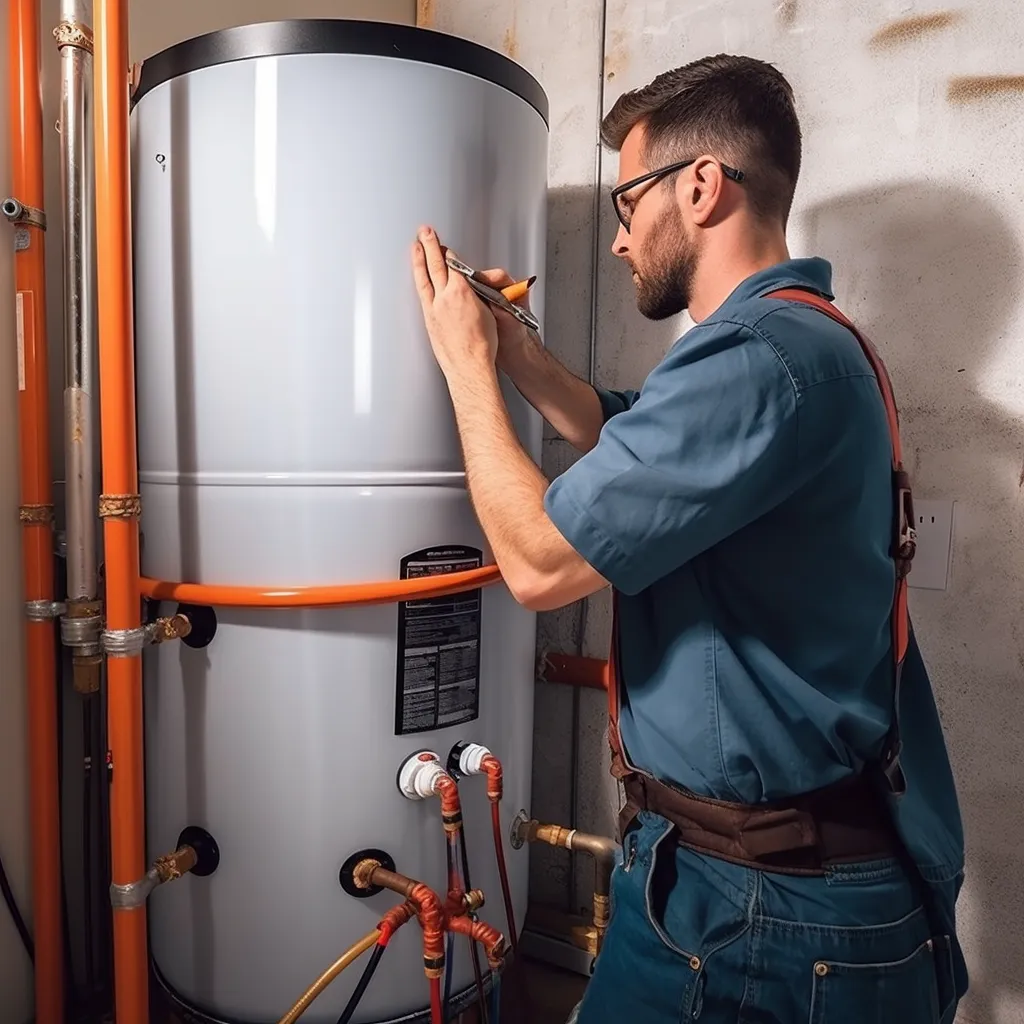
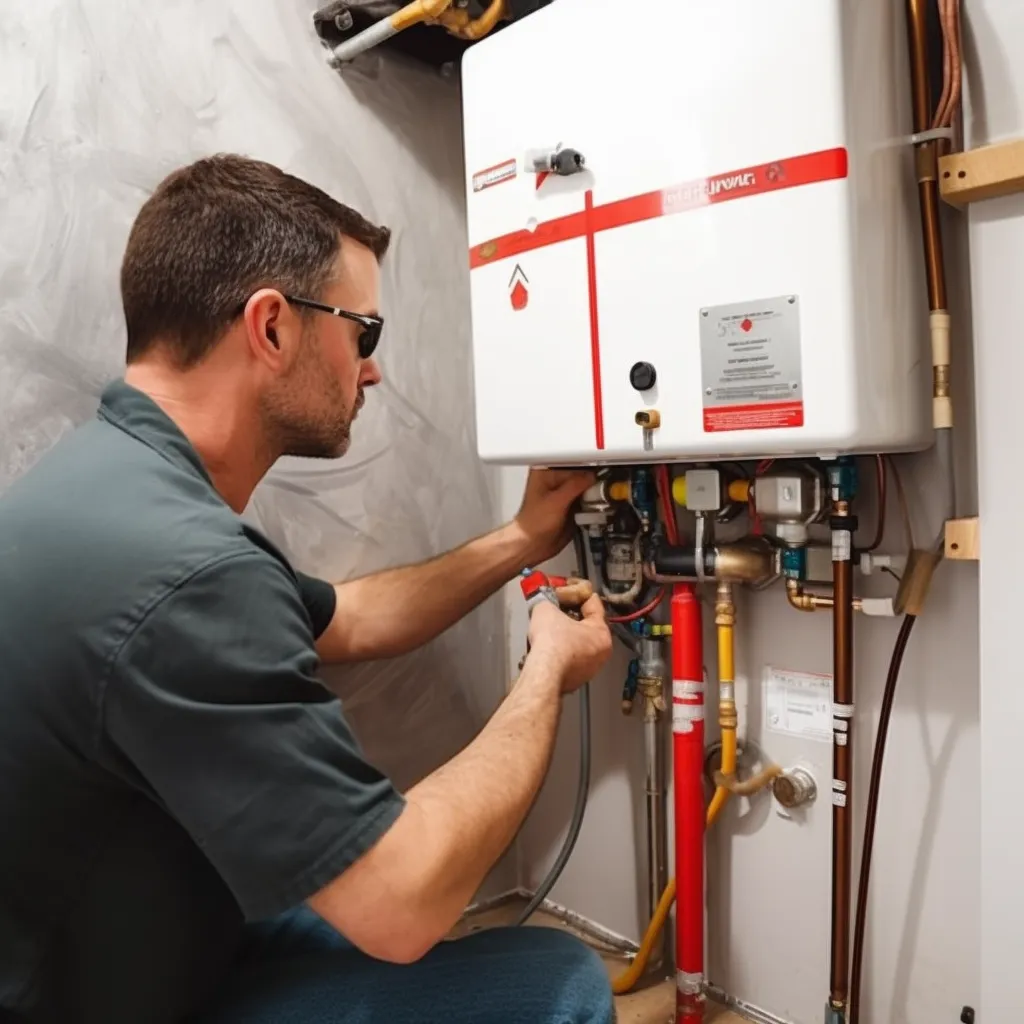
What is a tankless water heater and how does it work?
Tankless hot water heaters offer a perfect solution for accessing hot water on demand. By heating water as it flows through the unit, these models eliminate the requirement for a large storage tank. With this innovative technology, you can enjoy the convenience of instant hot water whenever it's needed. Here's a brief overview of their operation: Upon activating the hot water faucet, the unit allows cold water to enter and pass through a heat exchanger. This component rapidly heats the water, enabling you to receive hot water directly from the faucet without any delay.
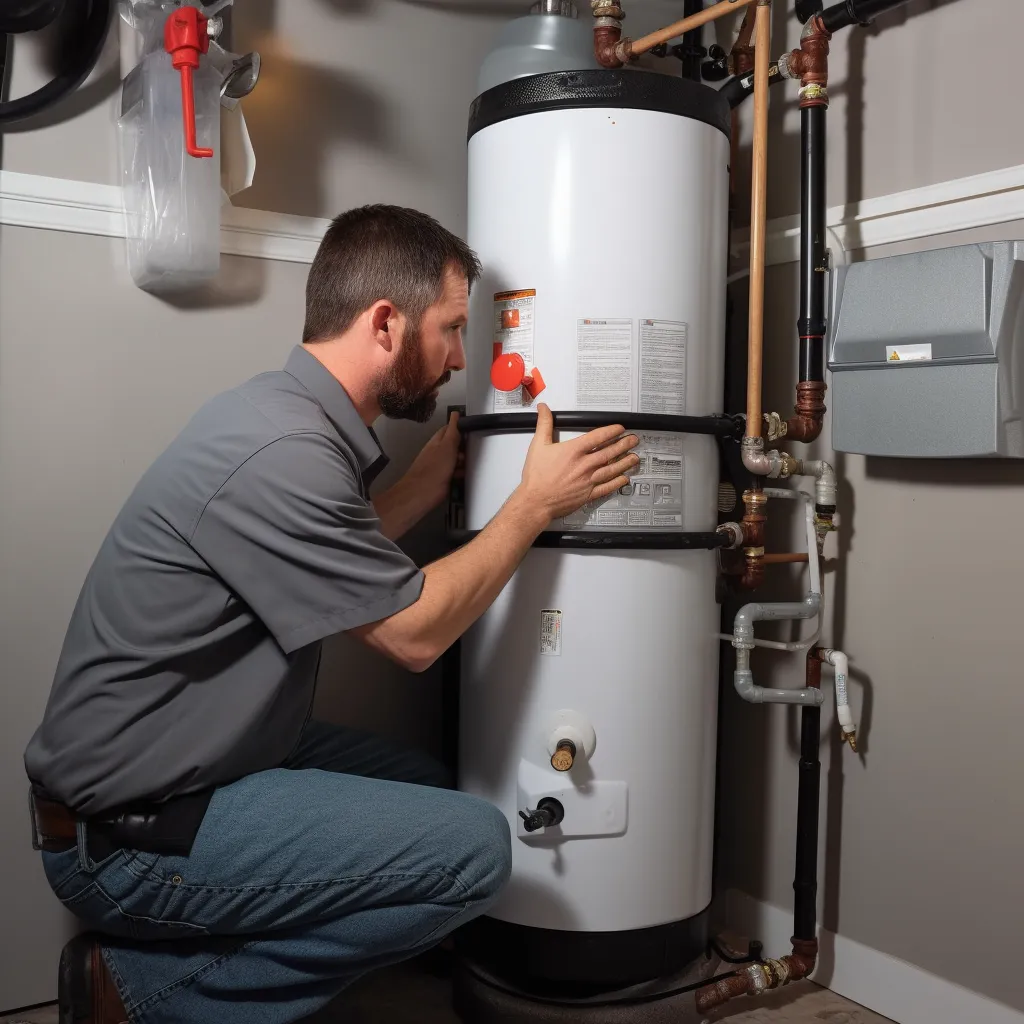
What are the benefits of a tankless water heater?
Tankless water heaters have become increasingly popular among homeowners across the country for a variety of reasons, including:
One of the key advantages is their energy efficiency, which helps lower utility bills and save on energy consumption.
These innovative heaters offer an endless supply of hot water, ensuring that it's readily available whenever needed.
Another benefit is their space-saving design, requiring less room compared to traditional tank water heaters.
Tankless water heaters have a longer lifespan, typically lasting 15-20 years, surpassing the longevity of traditional tank models.
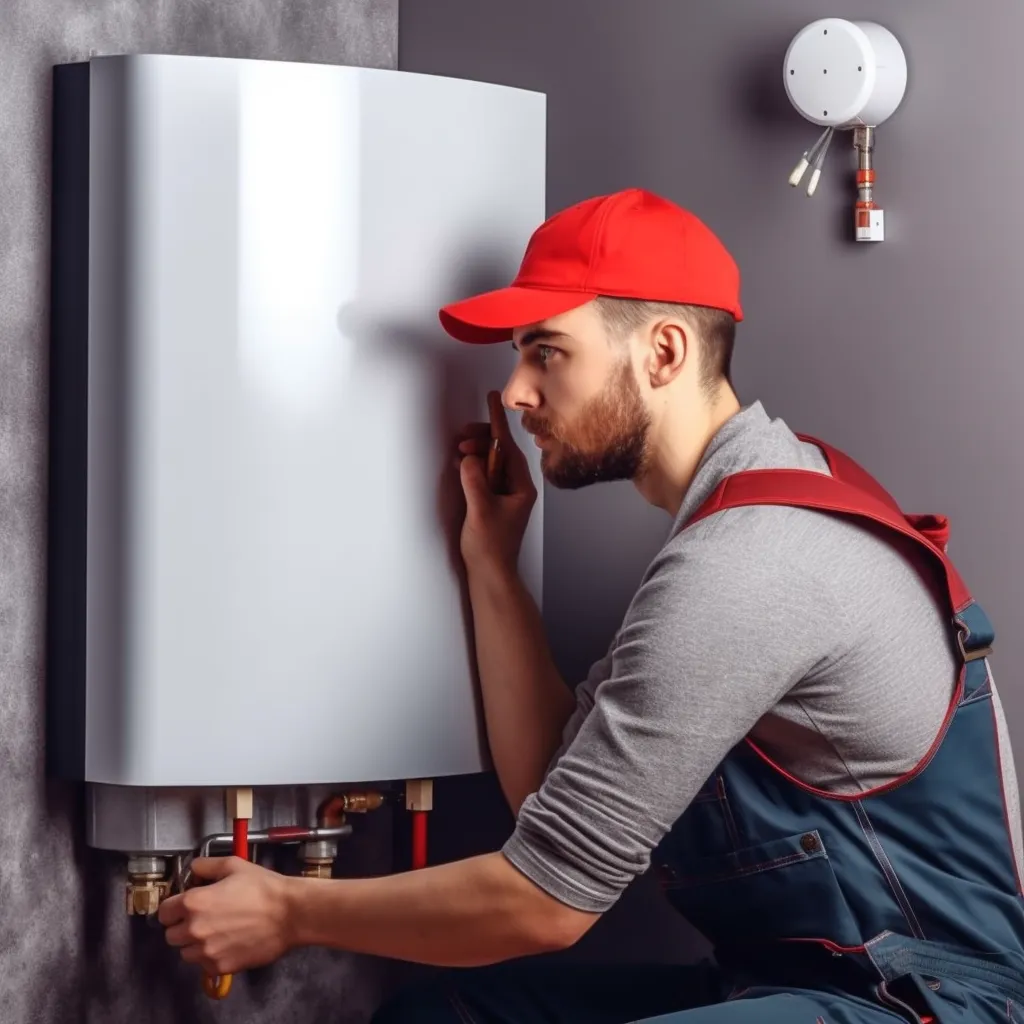
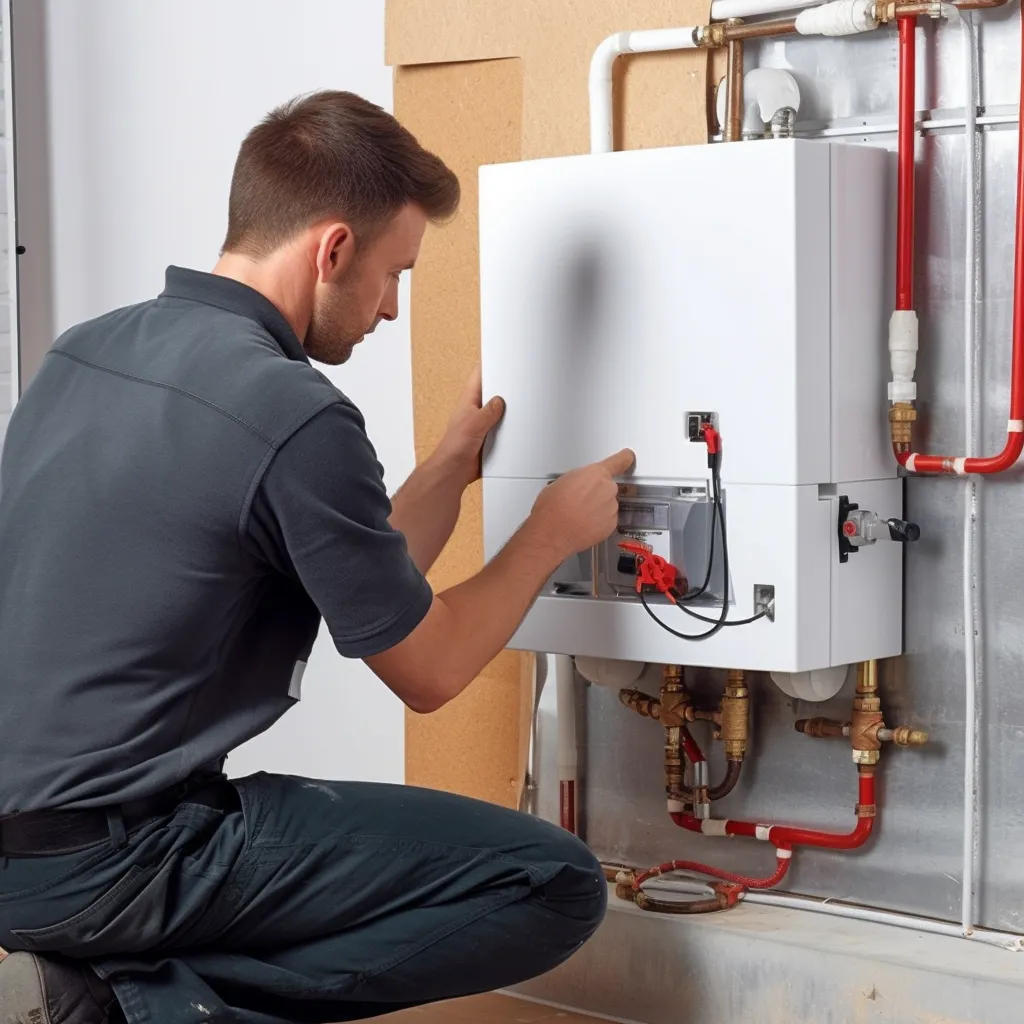
What are the disadvantages of a tankless water heater?
While tankless water heaters offer numerous benefits, it is important to be aware of their downsides as well:
One drawback is the higher initial investment compared to traditional tank water heaters. However, the long-term cost savings and energy efficiency of tankless models can outweigh this initial expense.
Another potential downside is the limitation on flow rate, particularly when multiple hot water outlets are used simultaneously. It's crucial to consider the specific needs of your household and ensure that the tankless water heater you choose can meet the demand for hot water during peak usage times.
Specialized installation and maintenance requirements are common with tankless water heaters, often necessitating professional assistance. This ensures proper installation and optimal performance, but it's important to factor in the additional costs associated with professional services.
There is a possibility of experiencing the "cold water sandwich effect" with tankless water heaters. This refers to a brief burst of cold water between hot water usage, which can be inconvenient. While this occurrence is rare, it's worth considering if consistent hot water supply is of utmost importance to you.
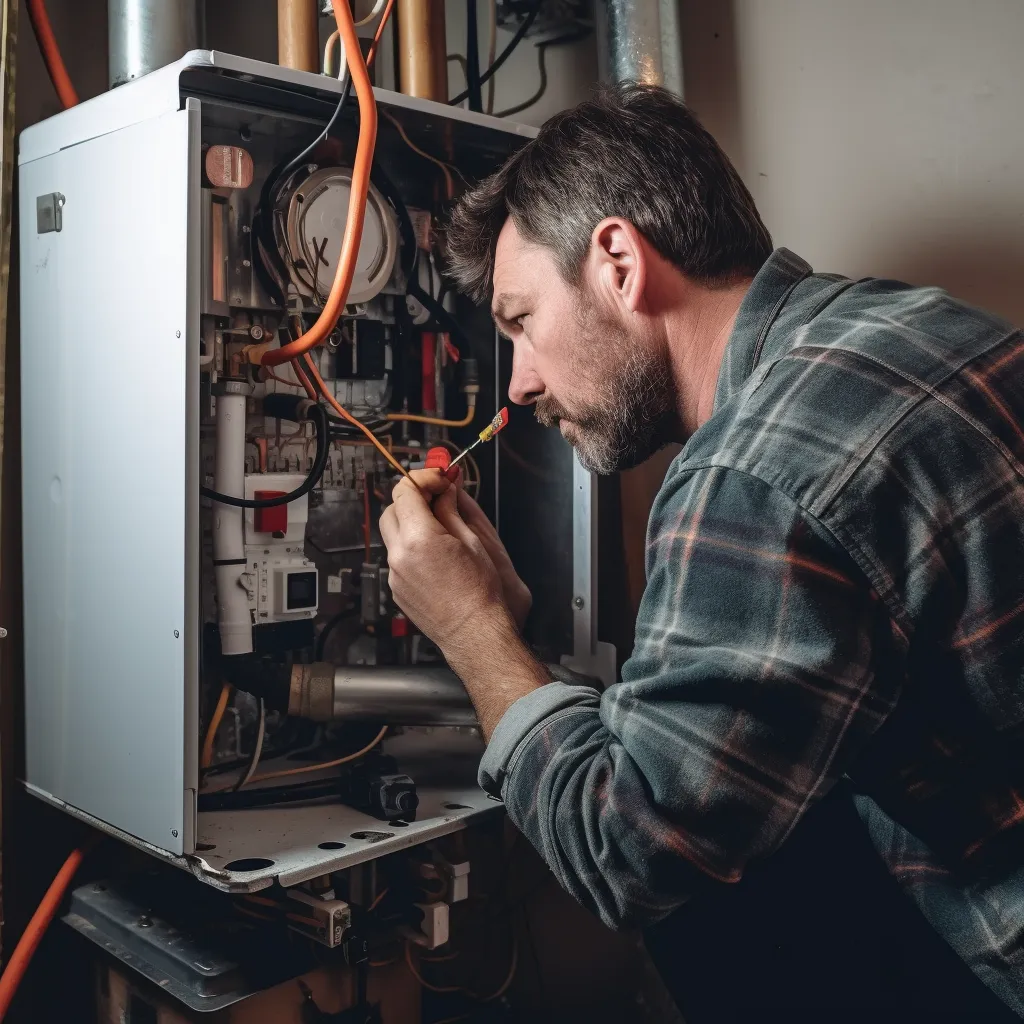
Are storage tank water heaters energy-efficient?
Traditional water heaters with storage tanks have a reputation for being energy-consuming due to their continuous water heating, even when not in use. This characteristic makes them less energy-efficient compared to other options. Nevertheless, recent advancements in tank models have addressed this issue by incorporating improved insulation and heating technologies. As a result, these newer tank models offer increased energy savings. Although they may not be the most environmentally conscious choice, they continue to be a dependable and convenient option for numerous households.
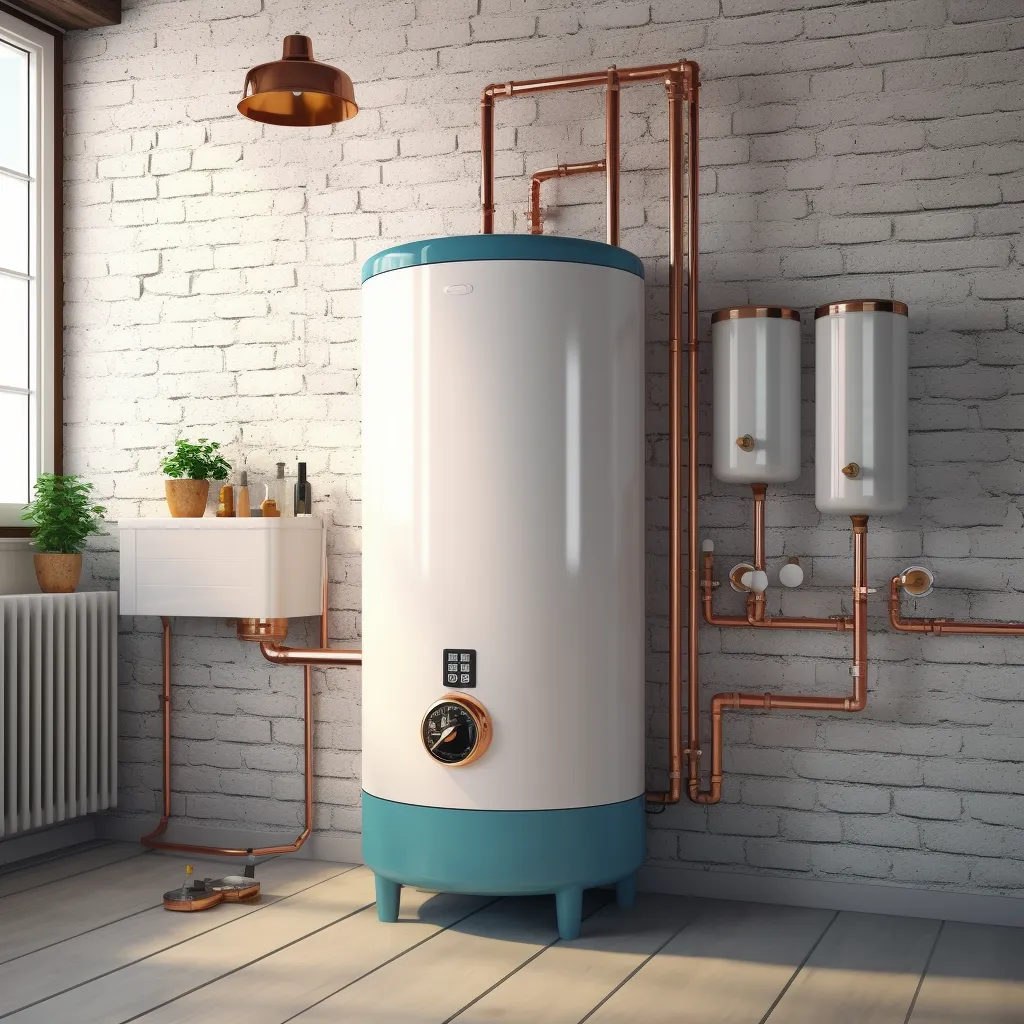
Are tankless water heaters energy-efficient?
Tankless water heaters have gained popularity for their impressive energy-saving features and cost-effectiveness. Compared to conventional tank-based models, they can be up to 34% more efficient in terms of energy consumption. The key to their efficiency lies in their ability to heat water on demand, eliminating the need for constant heating and storage. As a result, homeowners can significantly reduce their energy expenses over time. With their practicality and long-term cost benefits, tankless water heaters have become a favored option for many households.

Cost to buy and install
a tank water heater
The cost of tank water heaters can vary depending on their size and type. Typically, prices for these heaters fall within the range of $500 to $2,000. However, if you decide to go for a more advanced model equipped with extra features, the overall expense can be higher. It's worth noting that installation expenses can go up to $1,500, depending on the prevailing labor rates and plumbing conditions in your specific location. Keep in mind that setting up a dedicated electrical circuit and having a reliable gas line are necessary prerequisites for installation. Additionally, it is crucial to select a tank size that aligns with the hot water demands of your household. This ensures an ample supply of hot water for everyone in your home Parkville home.
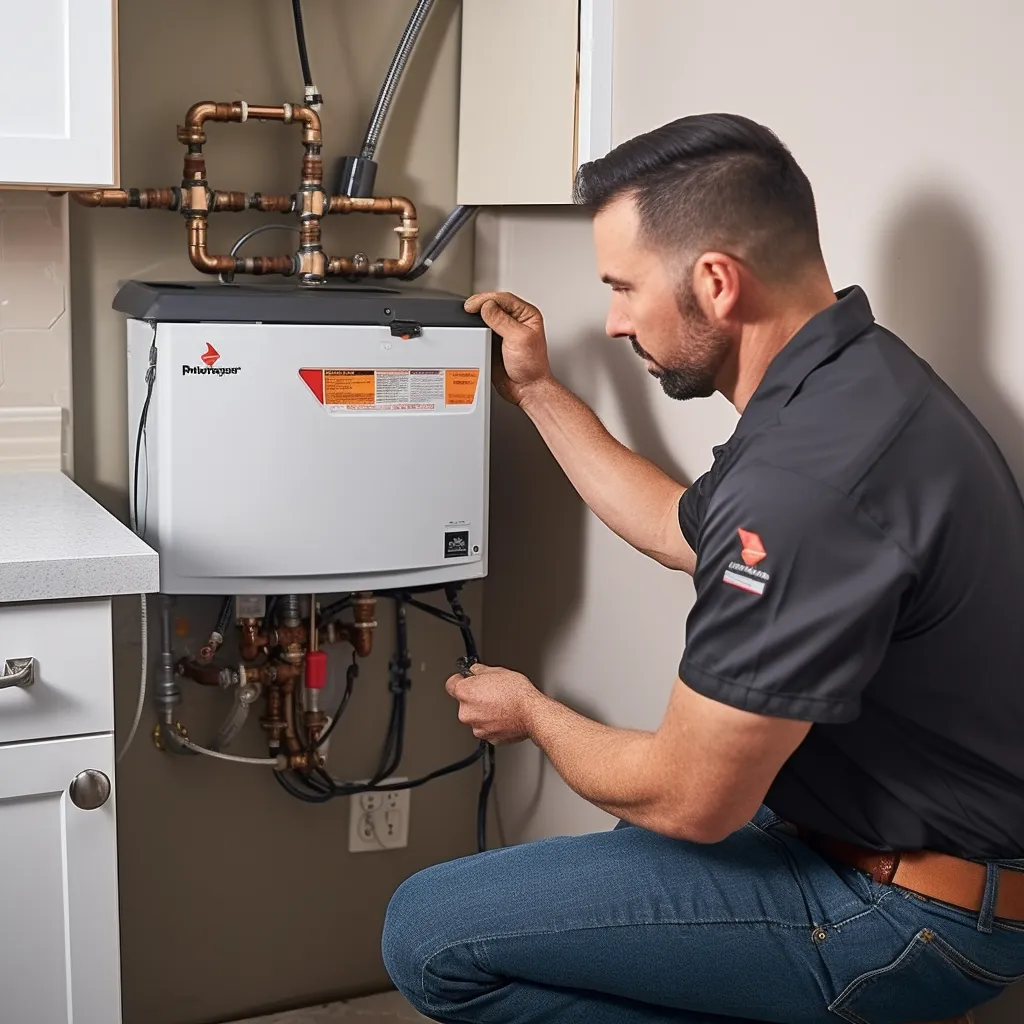
Cost to buy and install
a tankless water heater
Tankless water heaters, although pricier than traditional models, offer numerous advantages. Their price range typically falls between $1,000 and $3,000, while installation costs can vary from $500 to $2,000 based on factors such as local labor rates and your home's plumbing system. Unlike conventional water heaters, tankless units operate without a storage tank and necessitate a larger gas line and an electricity source. It's essential to ensure that your home's infrastructure can handle the increased energy demand of a tankless system. To maximize performance, it's crucial to select the appropriate unit size that aligns with your household's hot water requirements.
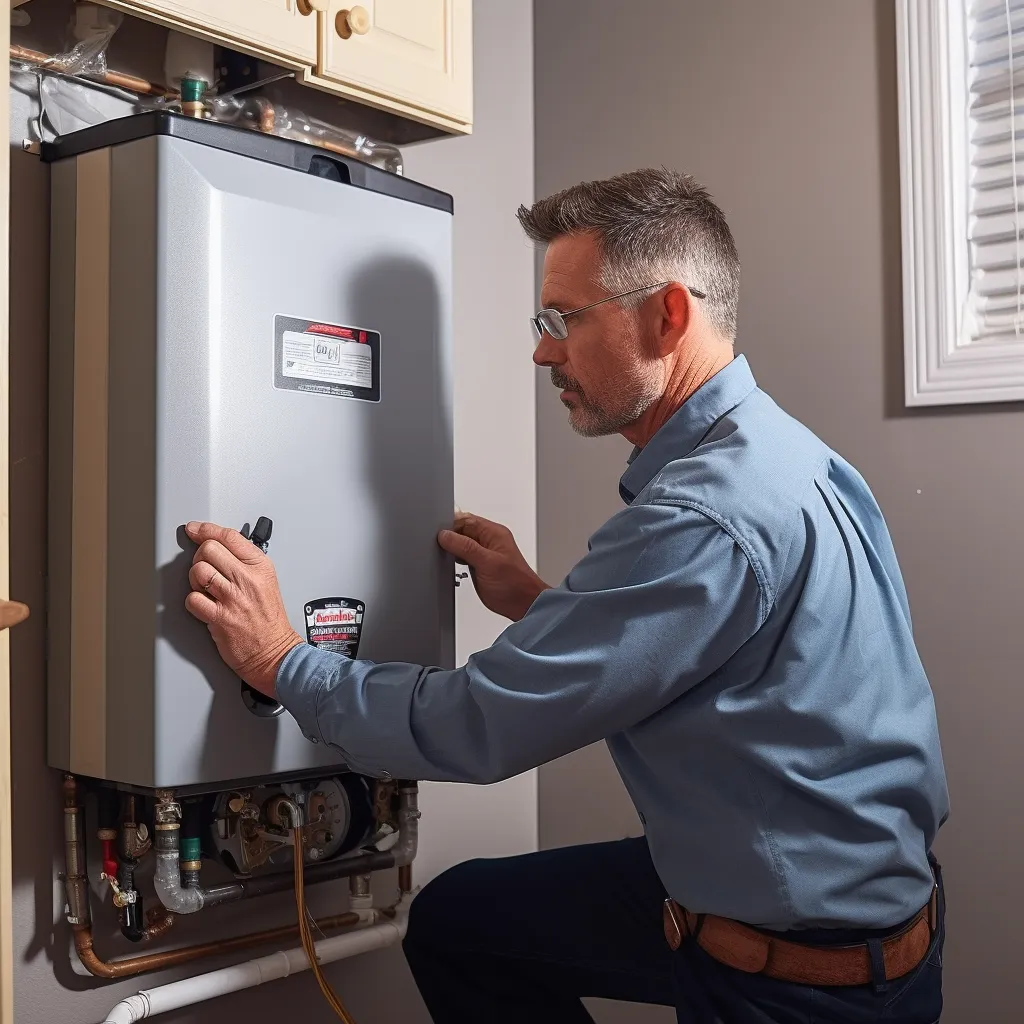
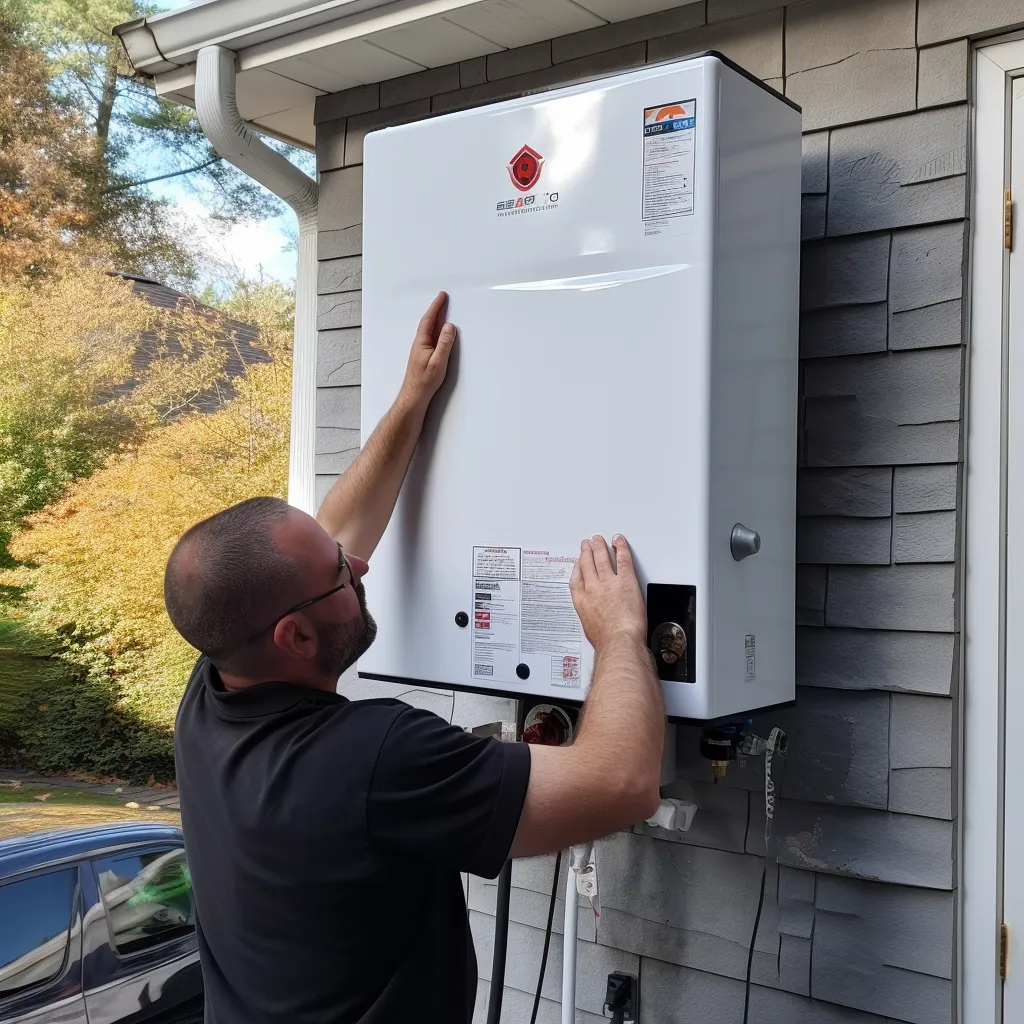
Common storage tank water heater maintenance issues
When it comes to storage tank water heaters, proper maintenance is crucial to avoid common issues that can arise. Here are some common issues:
One such problem is a leaking tank, which can not only cause water damage but also lead to costly repairs. To prevent any further complications, it is essential to conduct regular inspections to promptly identify and address any leaks.
Corrosion is another concern that can affect the tank itself or its components. This can result in reduced efficiency of the system and potentially lead to expensive repairs. Therefore, it is important to take preventive measures and ensure that corrosion is minimized or prevented altogether.
Sediment buildup is a common occurrence over time in storage tank water heaters. This accumulation of sediment can have detrimental effects, such as diminishing the heating efficiency of the tank and even causing damage to plumbing fixtures. Regular maintenance and cleaning are necessary to prevent such issues and maintain optimal performance.
Safety is a paramount consideration when dealing with tank water heaters. Incorrect installation can pose serious hazards, including gas leaks or electrical shorts. To mitigate these risks, it is imperative to have a professional plumber handle the installation. Their expertise ensures that proper safety measures are followed, providing peace of mind and a safe operating environment.
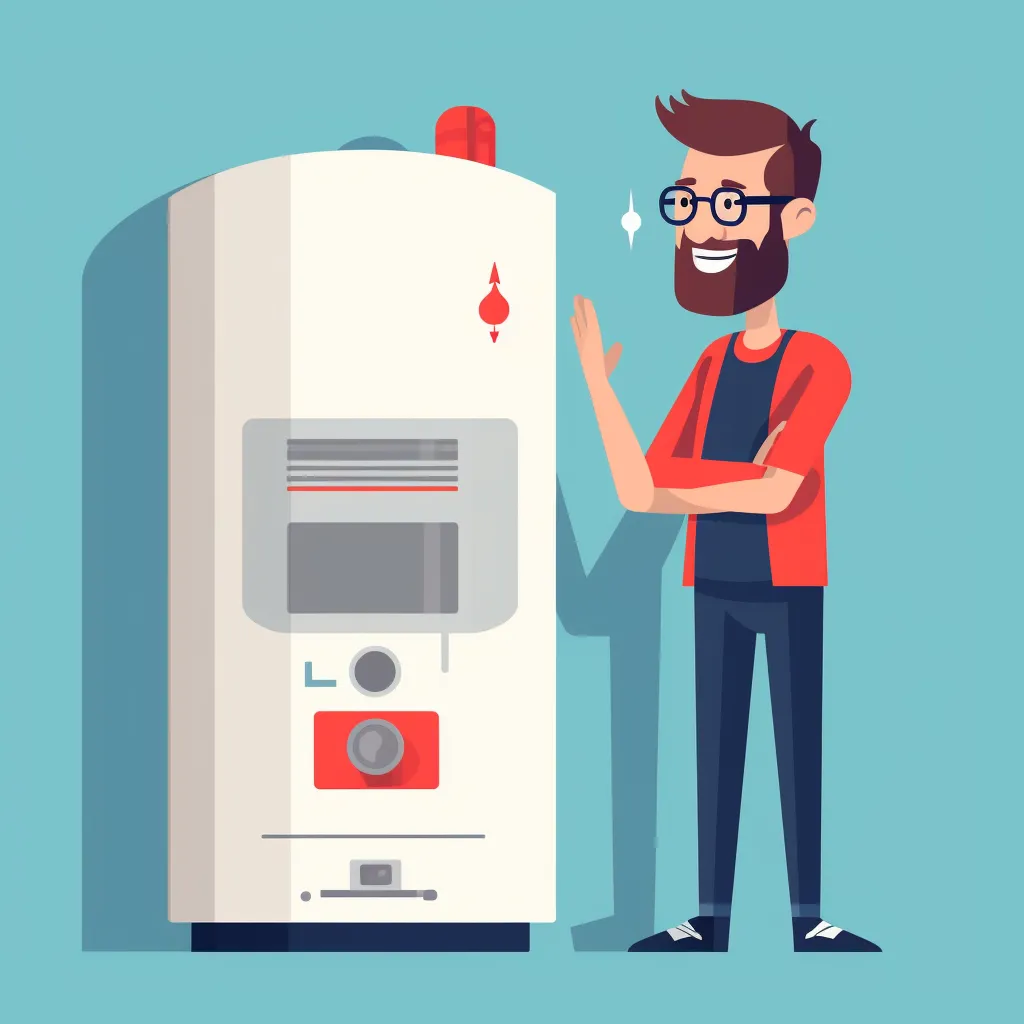
Common tankless water heater maintenance issues
While tankless water heaters offer numerous advantages, they are not exempt from maintenance concerns:
Similar to tank-based systems, sediment accumulation can occur in tankless water heaters, resulting in diminished efficiency and possible harm.
The presence of hard water can exacerbate these issues by causing scale buildup, which can hinder performance and shorten the unit's lifespan. To mitigate this problem, it is crucial to follow the descaling procedures recommended by the manufacturer. By doing so, you can maintain optimal functionality and extend the longevity of your tankless water heater.
It's worth noting that tankless water heaters require a higher electrical capacity when compared to traditional heaters. This requirement should be taken into account during installation to ensure that your electrical system can adequately support the unit's power needs.
Tankless water heaters typically necessitate a larger gas line. Ensuring the proper and secure installation of the gas line is vital not only for the unit's functionality but also for maintaining safety. Regular inspections for leaks and ensuring a leak-free gas line are imperative to ensure the reliable operation of your tankless water heater.
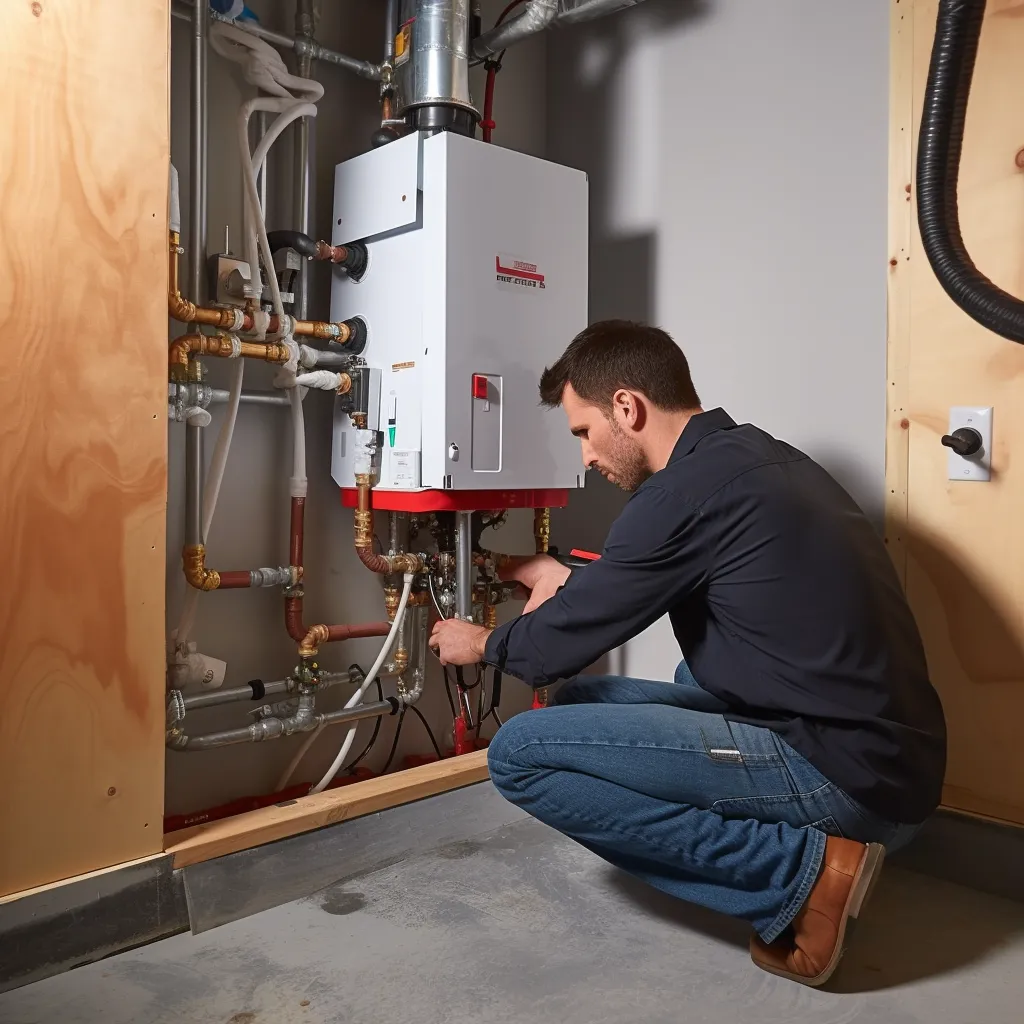
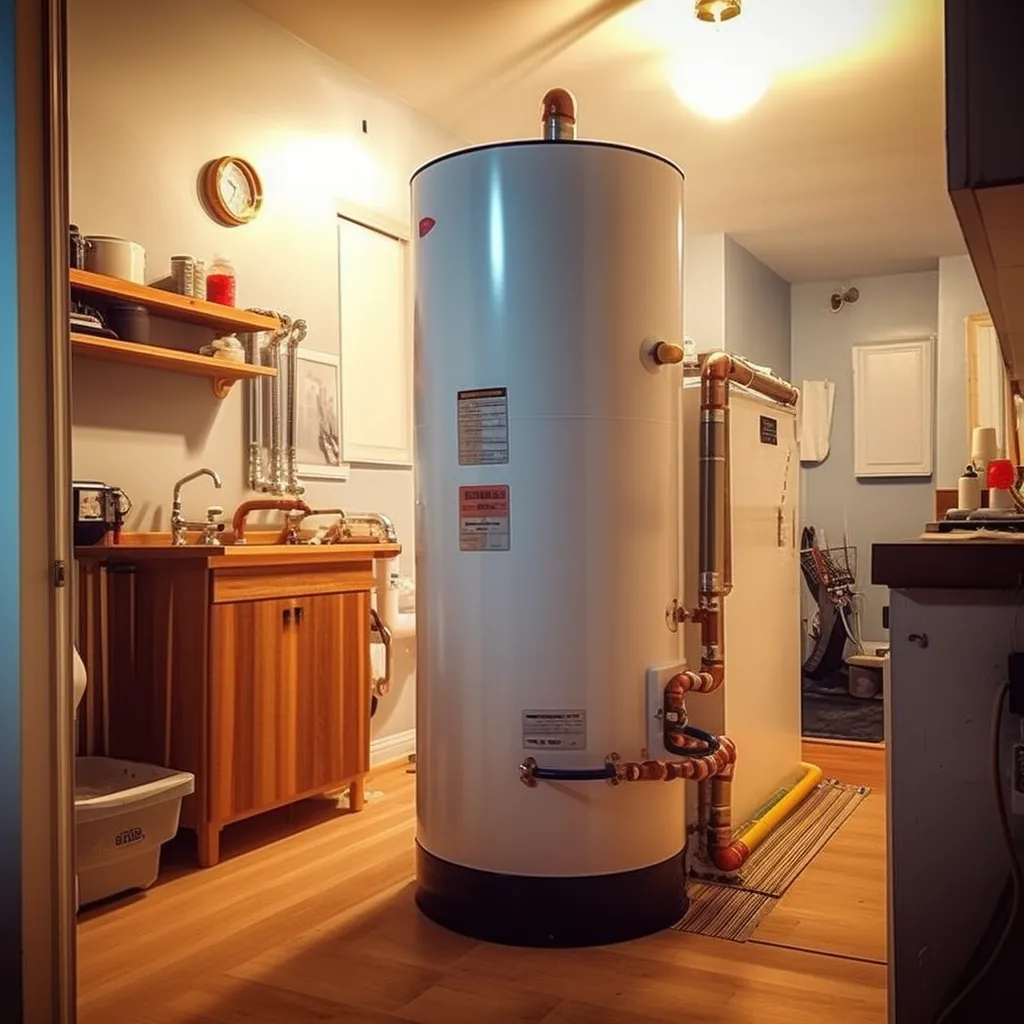
What is the lifespan of a tank water heater?
Tank water heaters have a typical lifespan of 8-12 years, although this can vary depending on factors such as usage, quality, and maintenance. If you're wondering when it's time to replace your tank water heater, there are a few signs to watch out for. Rust-colored water, leaks, a decrease in water temperature, or unusual sounds coming from your heater can all indicate that its lifespan is coming to an end. If you observe any of these signs, it's important to reach out to a professional for assistance.
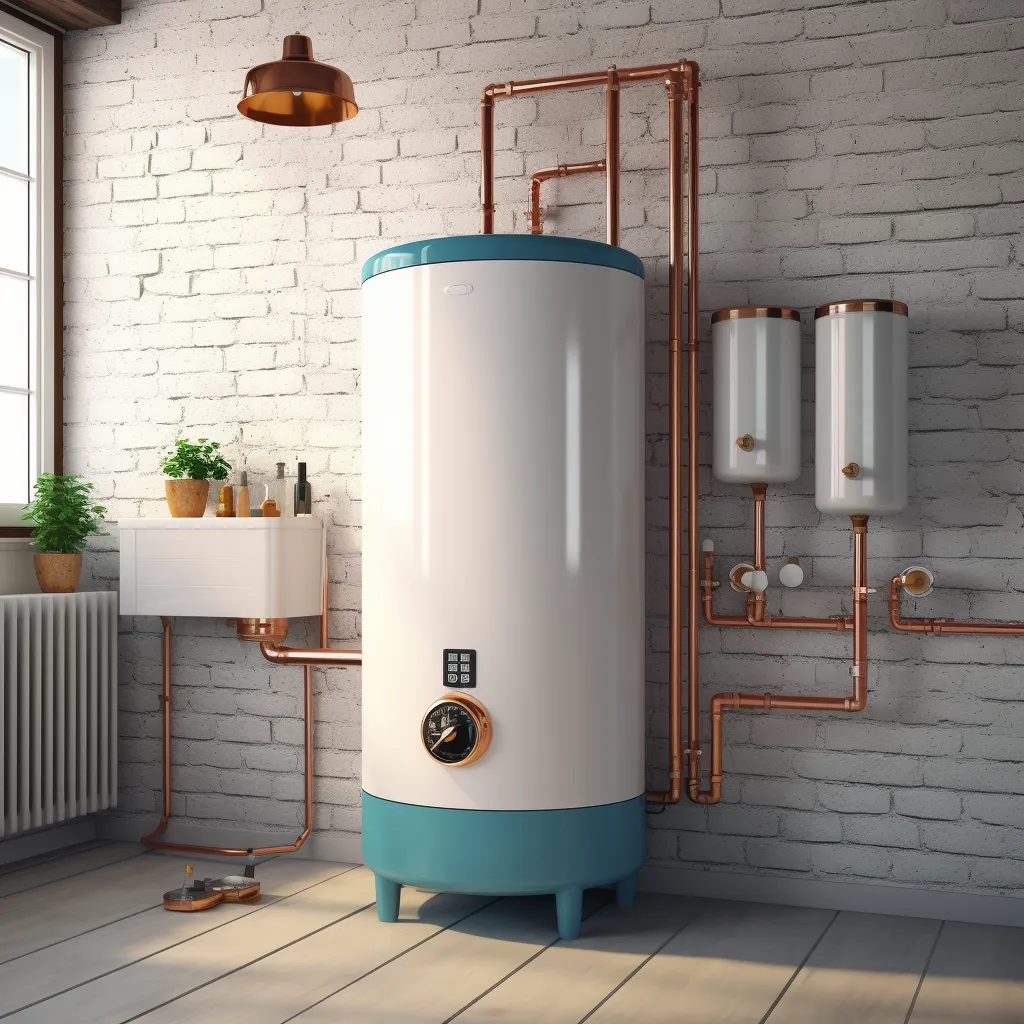
What is the lifespan
of a tankless water heater?
Tankless water heaters provide a cost-effective and durable solution for long-term usage. These units boast an impressive average lifespan of 15-20 years when properly maintained. As their popularity surges, advancements in technology are expected to further elevate their performance capabilities.
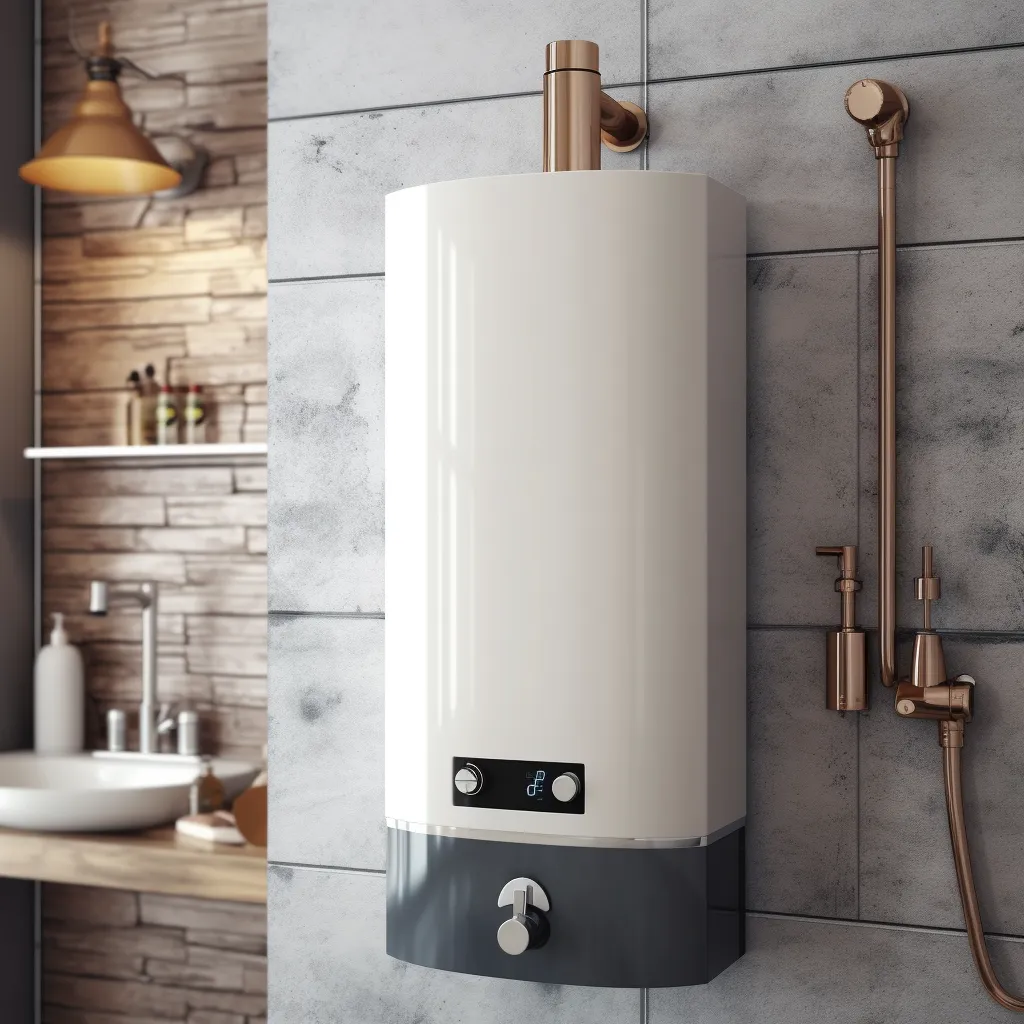
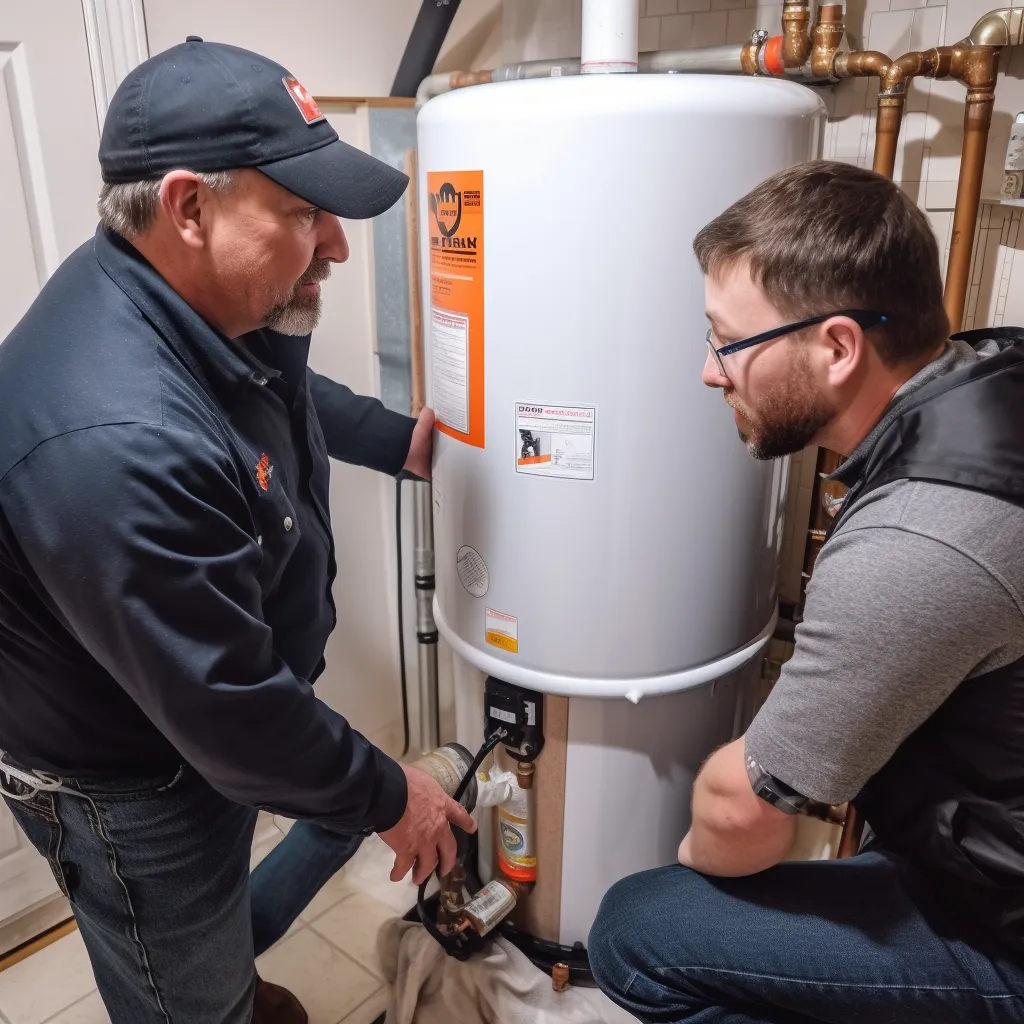
Gas vs electric water heaters
When selecting a water heater, it's important to take into account the choice between gas and electric options. Gas water heaters offer the advantage of faster water heating and lower operating costs. However, they do require regular maintenance and access to a gas line. On the other hand, electric water heaters are relatively easier to install but may result in higher operating expenses and slower heating times. Ultimately, the decision between the two depends on your specific requirements and personal preferences.
How to decide if a tankless or a tank water heater
is right for you
To decide between a tankless or tank water heater, several factors should be considered to ensure the best choice for your needs::
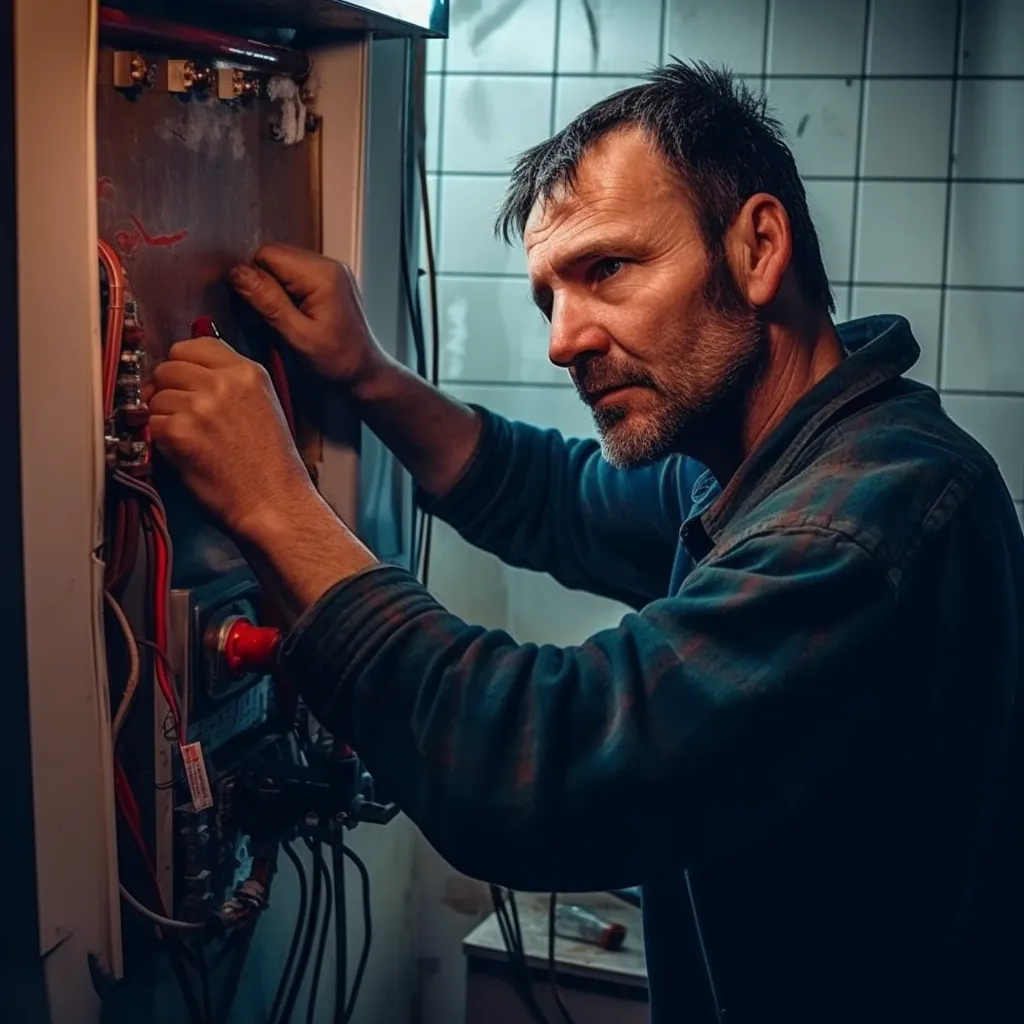
One key consideration is the upfront cost, as tankless water heaters tend to be more expensive initially. It's important to account for the additional expenses related to installation and maintenance.
Assessing your hot water usage is another crucial factor. If you have continuous hot water demands, a tankless water heater is a suitable option. However, if your usage is lower and the demand is not constant, a tank model may be sufficient.
Energy efficiency ratings should also be compared between the two types of water heaters. This will help determine which option can provide better long-term energy savings.
The climate in your area should not be overlooked. Tankless water heaters are designed for extreme temperatures, making them suitable for regions with harsh weather conditions. On the other hand, tank water heaters are often more appropriate for milder climates.
Consider the available space in your home. If space is limited, tankless water heaters offer an advantage as they require less physical space compared to tank models.
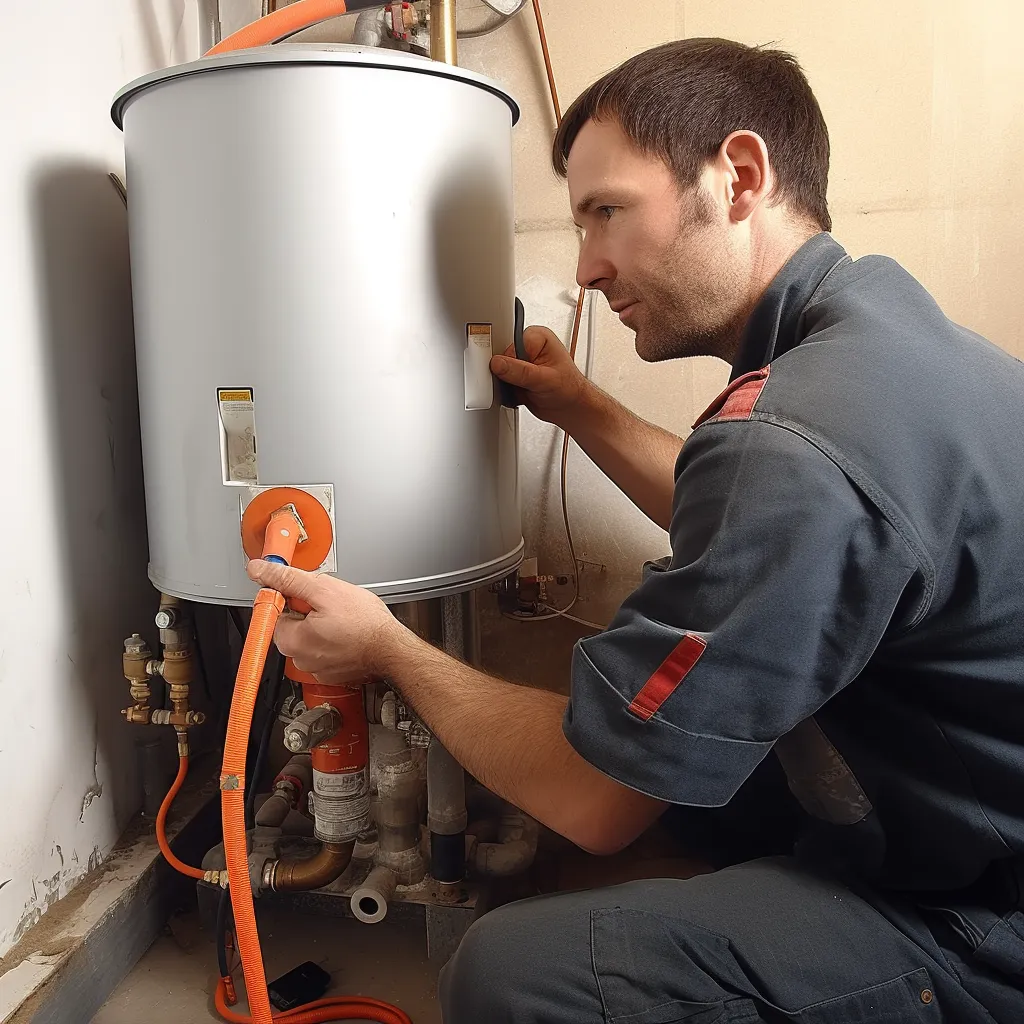
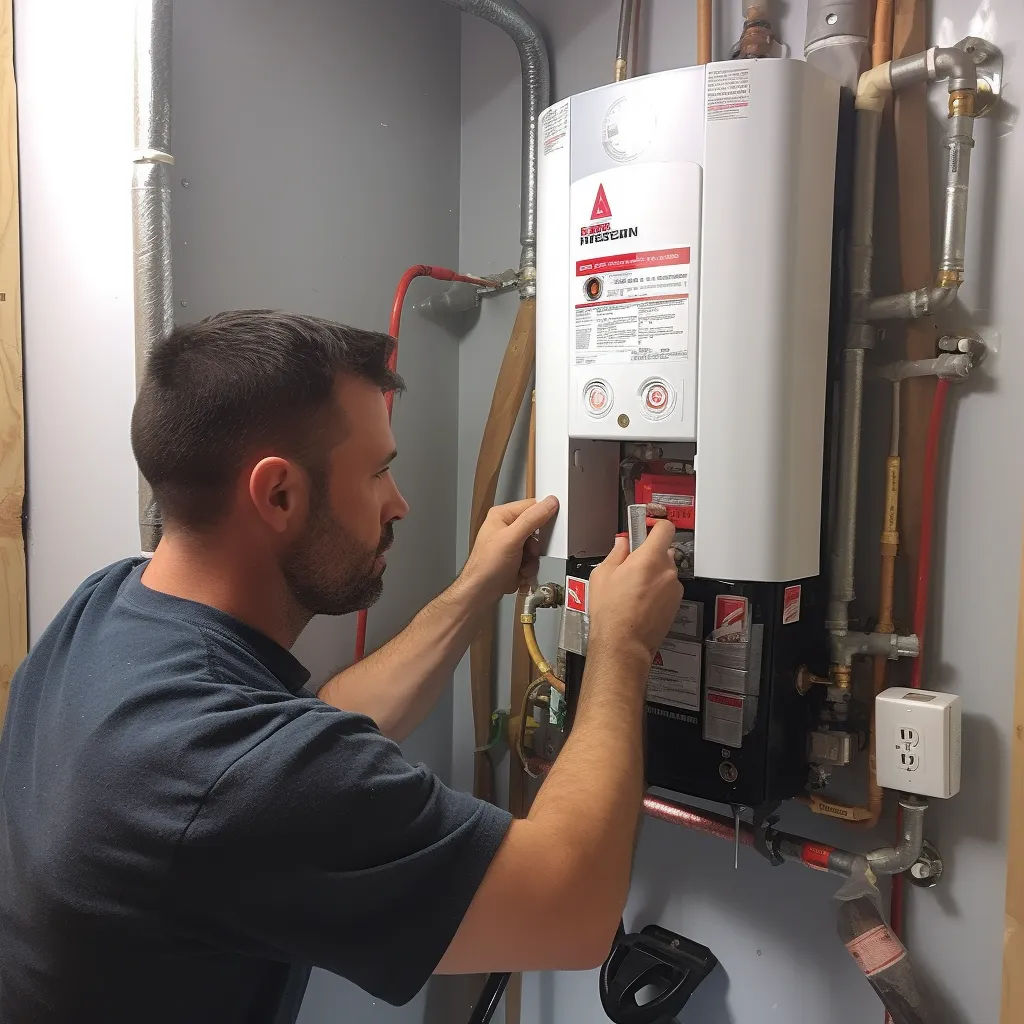
Is it important to hire a licensed professional?
It's essential to rely on the expertise of a licensed professional if you're buying a new water heater. By doing so, you can ensure compliance with building codes and receive expert advice regarding the most suitable type and size of water heater for your specific requirements. Hiring a professional not only helps you steer clear of potential hazards but also grants you peace of mind, as you can rest assured that the installation process is being carried out correctly and safely.

Researching tankless vs tank water heaters
is important
When selecting a water heater for your residence, one crucial choice you'll face is whether to opt for a tank or a tankless model. To ensure you make the right decision, it's essential to carefully assess your specific needs, budget constraints, and installation requirements. Thoroughly researching and evaluating these factors is vital before making a final choice. The installation of a new water heater can yield significant benefits for your home, such as lower energy expenses and on-demand hot water availability. It is crucial to delve into the various types of units available, including their energy efficiency ratings, in order to make a well-informed decision. Wishing you the best of luck as you navigate through the decision-making process!
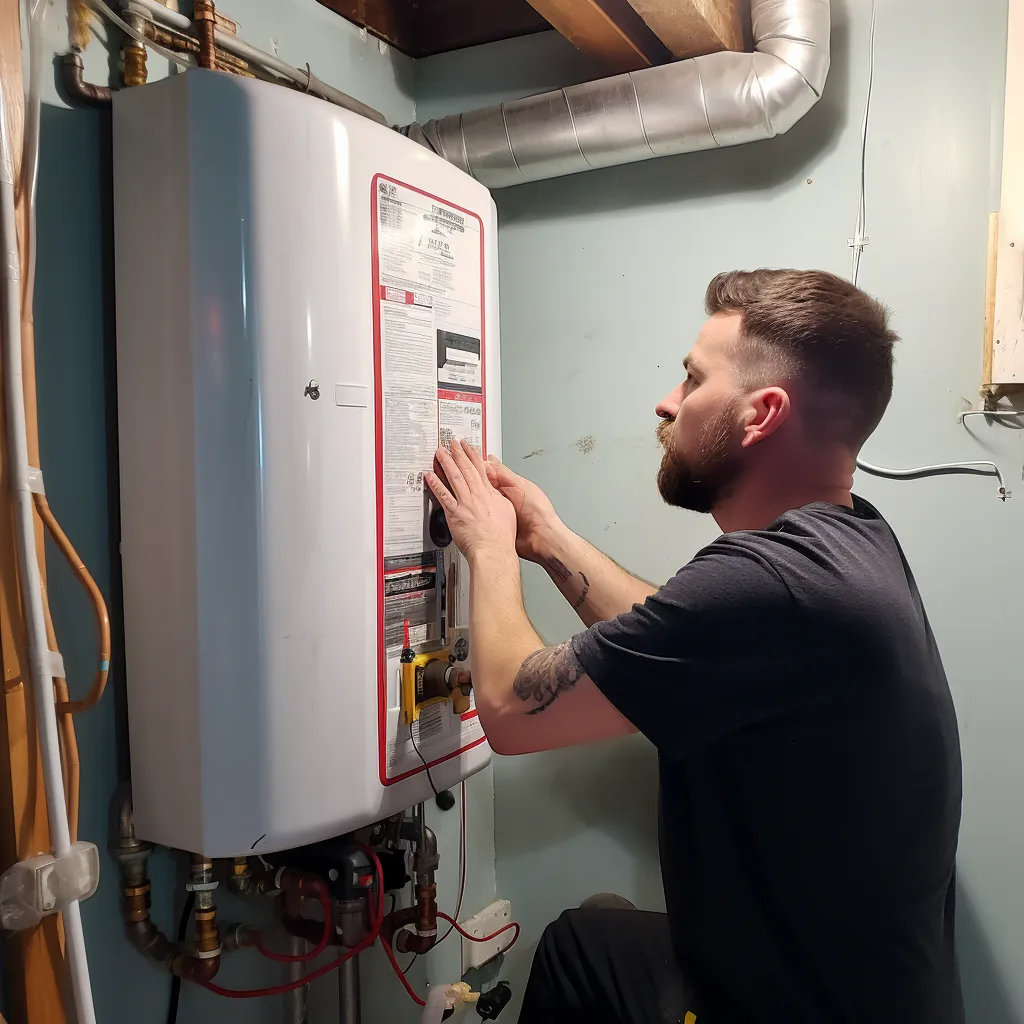
Contact Us
GET IN FULL TOUCH
PHONE: (410) 883-5584
EMAIL:
william@waterheaterparkville.com
Strong Plumbing Parkville
Parkville, MD 21234
